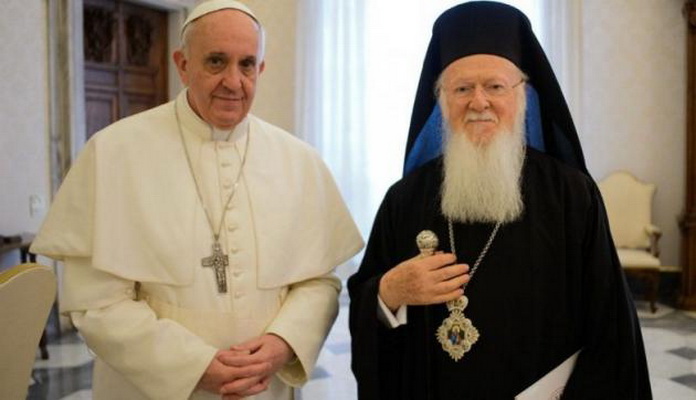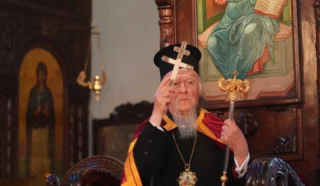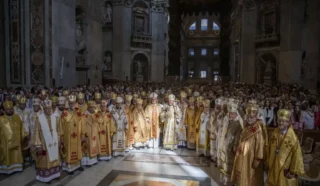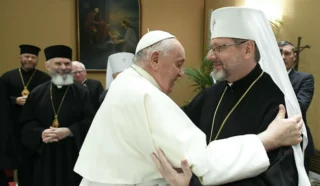Pope Francis is discussing with Patriarch Bartholomew of Constantinople a possible common date for Easter for Catholics and Orthodox. The pontiff spoke about this in a conversation with the Jesuits during a recent trip to the Democratic Republic of the Congo and South Sudan, Pravlife writes.
The Vatican is preparing a meeting of the pontiff with the head of the Phanar on the occasion of the celebration in 2025 of the 1700th anniversary of the Nicene I Ecumenical Council. In the same year, the celebration of Christ’s Sunday will be common to the Catholic Church and the family of Orthodox Churches.
“With Patriarch Bartholomew, we want to come to an agreement on the date of Easter, which simply coincided for both Churches this year. Let’s see if we can come to an agreement for a more distant future,” Pope Francis said.
The pontiff added that he and the head of the Phanar want to celebrate the anniversary date of the Council of Nicaea “like brothers”, especially since Patriarch Bartholomew became the first Primate of the Church of Constantinople who came to the enthronement of the Pope in 2013.
It was the Nicene I Ecumenical Council that decided that Christians should celebrate Easter on the first Sunday after the first full moon following the spring equinox.
The date of the equinox in the church calendar is calculated not astronomically, but by calculations. The basis of the Julian calendar, which is used by the Russian, Jerusalem, Serbian, Georgian and Polish Orthodox Churches, is the Alexandrian Easter. Being the oldest system of calculation, it was universal for a long time, until in 1582 Pope Gregory III introduced a new calendar in the Catholic Church, called the Gregorian.
The difference in dates between the Gregorian and Julian calendars gradually increased, and on the initiative of Patriarch Meletios IV of Constantinople, the Pan-Orthodox Congress of 1923 introduced the New Julian calendar, which completely coincided with the Gregorian calendar for the next 800 years.
Constantinople, Alexandria, Antioch, Cypriot, Hellas, Albanian, Czech lands and Slovakia, Romanian and Bulgarian Churches switched to this calendar, so their non-transferable holidays coincide with Gregorian dates. However, the day of Easter is common to all Local Orthodox Churches, as it is calculated according to the Alexandrian Easter, based on the Julian calendar.




